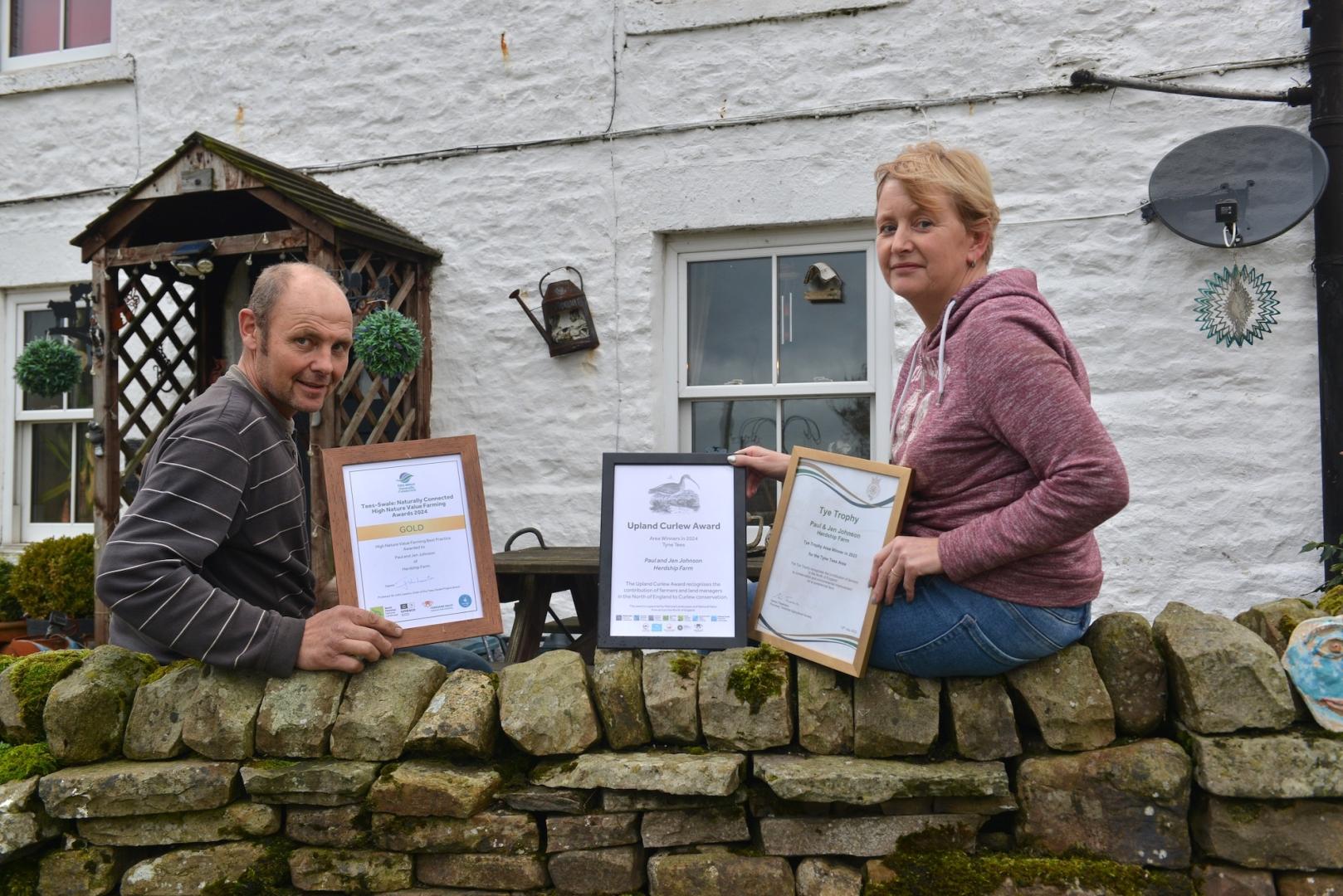AN upper dale couple have been recognised for their traditional farming methods and encouraging biodiversity.
Paul and Jen Johnson, from Hardword, earned the North Pennines National Landscapes’ prestigious high nature value farming best practice award earlier this month.
Judges praised the way the couple manage Herdship Farm, their constant attention to detail and continued enhancement of the farm and its habitats.
They highlighted their method of low intensity farming and said Herdship “is not special because of what they do, but because of what they don’t do” .
They added: “Herdship is traditionally farmed and managed to ensure the survival of black grouse, a species that has only 1,000 breeding pairs across England, and is a great place to see these rare birds.
“Recently, Paul and Jen have worked to reduce the use of wormers in their livestock, benefiting invertebrates and birds whilst also reducing costs.”
The couple believe the award is important because it recognises the value of farming in traditional ways and proves that what has been done for generations is the correct method of preserving the rare flowers and birds of the uplands.
It also shows Natural England and other authorities that they should listen to local knowledge, they say.
Mr Johnson said: “These big landowners have had loads of money in the eighties to take all the hedgerows out, all the fences out, to make bigger fields, blah-de-blah.
“Now rewilding and regenerative farming is coming back. It is no different to the 50s and 60s but college boffins come out and think it’s new.
“Now those large landowners are getting money to put hedgerows and stuff back in. All of these upper dale farms are being farmed quietly away, but you don’t get paid to preserve – you get paid to restore,” he added.
“Well, if it isn’t broken in the first place, you can’t restore it so you miss out on all that money. That is why these awards are special, because it is showing that not everybody is destroying everything and then getting paid to rectify it.
“There’s a lot of farmers that have just farmed quietly away as a family farm and looked after what they have got and not really thought they need a lot of thanks for it because they just do what they think is right.”
Elsewhere farmers from Lunedale and Holwick earned silver awards in separate award categories.
Stuart and Marie Collinson, of Harker Springs, Lunedale, were runners-up for the nature recovery award by impressing with their work to restore upland hay meadows and diversifying woodland shelterbelts.
The judges said: “Two large hay meadows have been restored using green hay; the first of these was so successful that it was able to be used in the restoration of the second.
“Last winter, with the help of the North Pennines National Landscape team, works were carried out to diversify conifer shelterbelts opening up space for new trees by removing windblown trees and selective thinning and introducing native broadleaved species.”
Meanwhile Karen Scott of Low Way Farm, Holwick, was runner-up in the public engagement award.
The judges said: “Along with holiday cottages and the Farmhouse Kitchen cafe and catering business, the bunk barns contribute to the wider farm business with its flock of 200 ewes and its species-rich hay meadows. The farm now provides an excellent location for public engagement events and activities, including residential visits from Cubs and Scouts, Duke of Edinburgh Award groups and has hosted events celebrating National Meadows Day.”
The awards were presented by Tees-Swale Programme chairman Professor Sir John Lawton during a ceremony at Eggleston’s Moorcock Inn.






